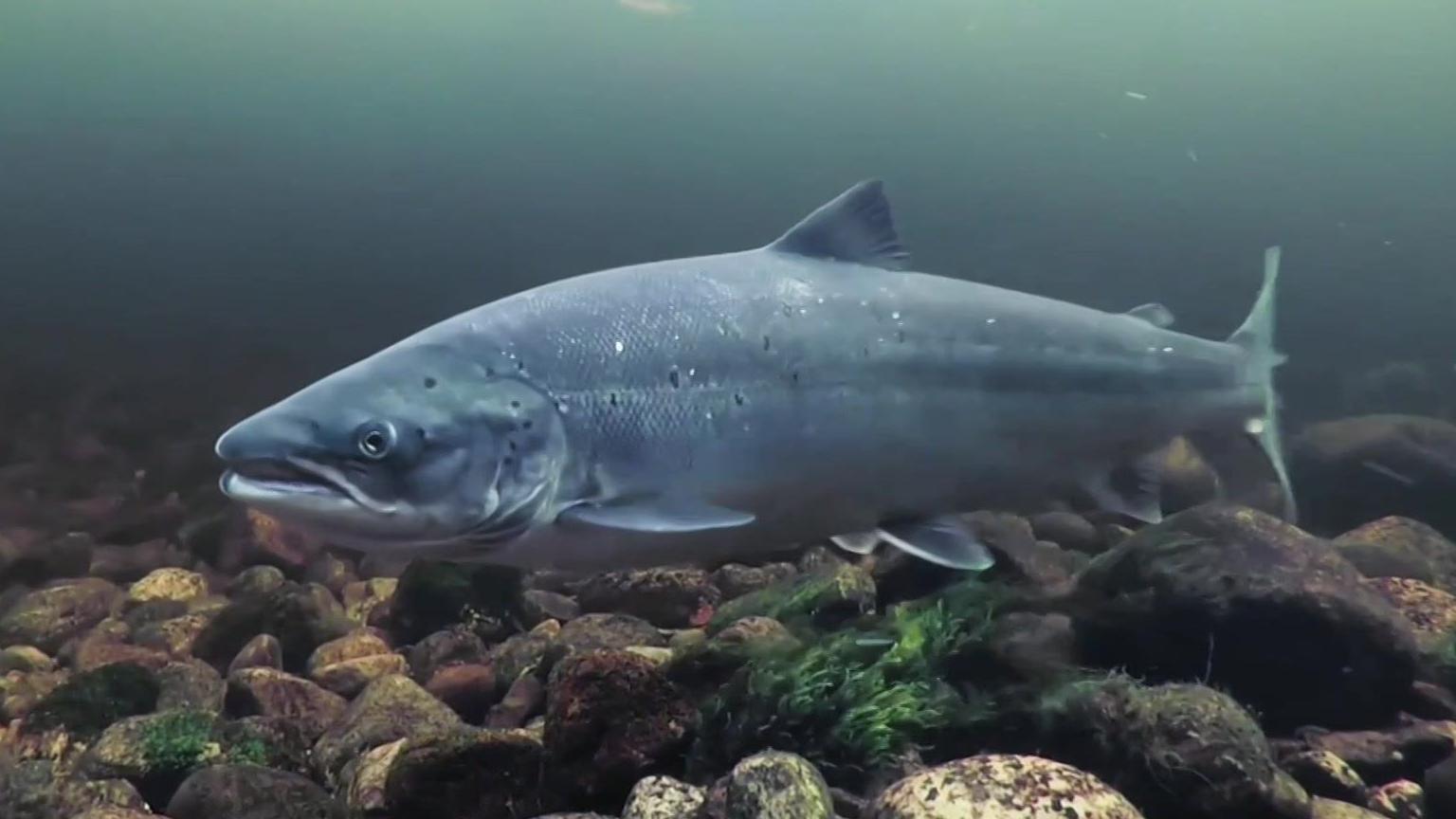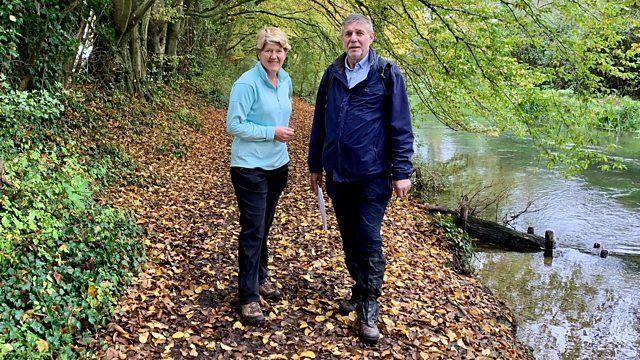'Worrying' amounts of microplastic in chalk stream
Samples of river water were carefully gathered by a team of citizen scientists and sent to a laboratory
- Published
A study of an internationally important chalk stream has found significant levels of microplastics in the water.
Clothing fibres, tyre particles and tiny fragments of plastics were among the materials identified by the project.
Samples are being gathered along the headwaters of the River Itchen in Hampshire after particulates were first detected last year.
The citizen science project aims to identify which plastics are in the river and to trace the sources of the pollution.
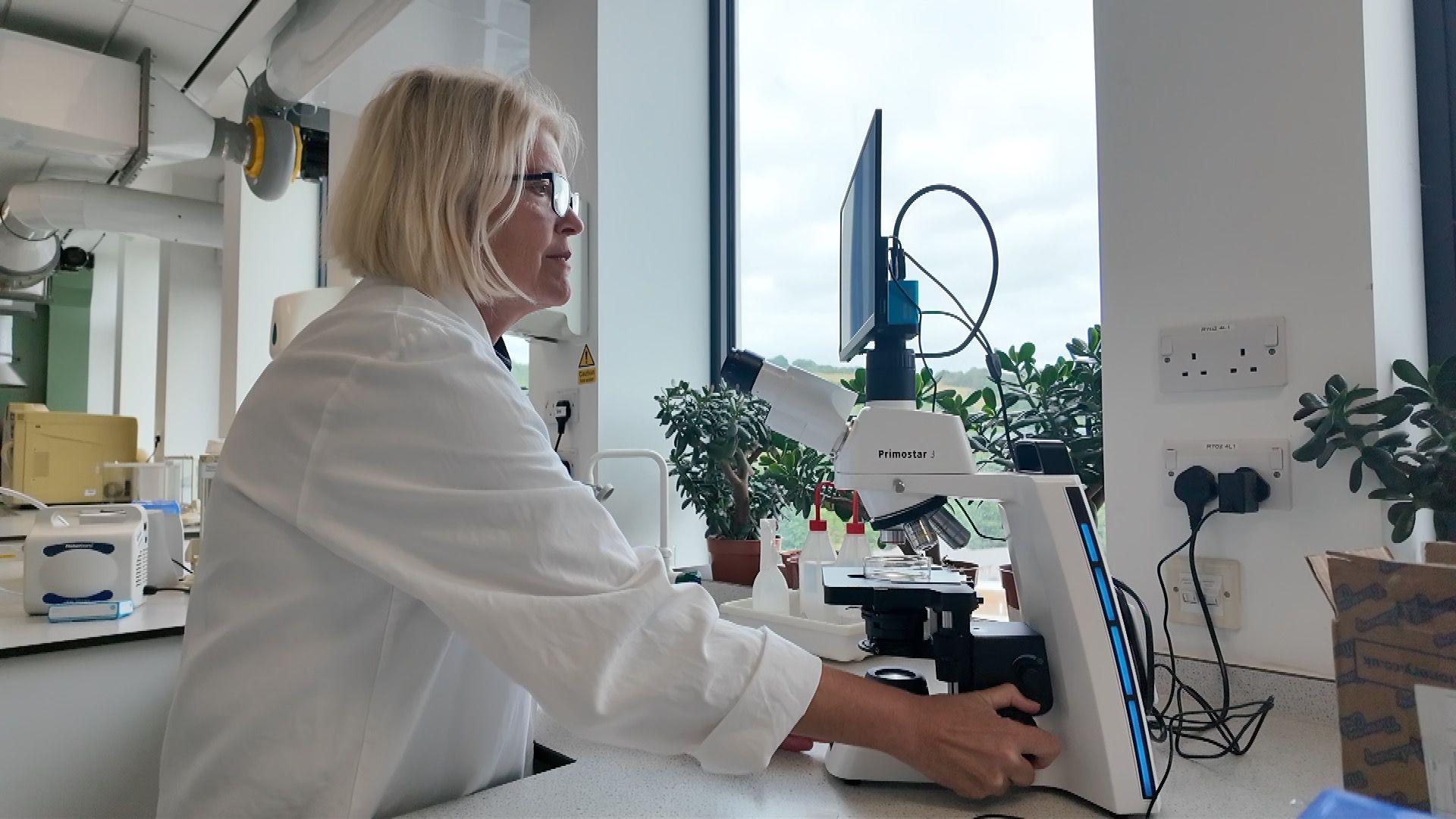
Dr Corina Ciocan, from the University of Brighton, has identified numerous plastic materials from samples of the River Itchen
"Finding huge amounts, huge numbers of fibres in that flowing river – it's worrying – it's absolutely worrying," said Dr Corina Ciocan, principal lecturer in ecotoxicology at the University of Brighton, where the samples are sent.
"It points towards a constant contamination. It's a chronic contamination that is ongoing every single day."
Strands of fibreglass have also been detected in the samples sent to Dr Ciocan's laboratory.
"I'm used to finding those particles in estuaries and in the ocean. I point the finger towards poor boatyard practices or abandoned boats," she explained.
"In a chalk river that's a little bit scary and a little bit of an unknown. We need to dig a little bit and see where those are coming from."
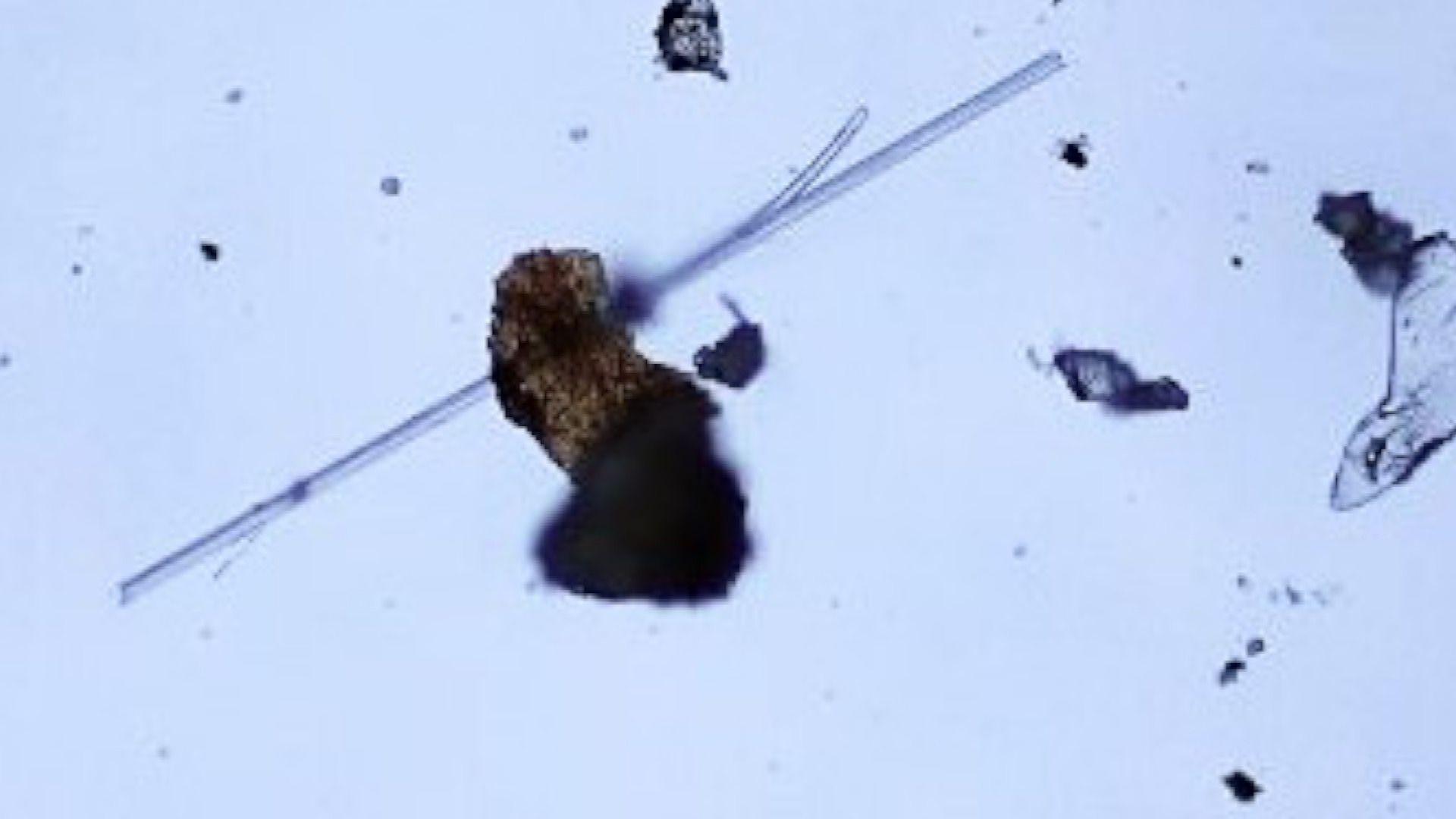
A closer examination under the microscope reveals fragments of tyre and strands of fibreglass contained in the samples from the chalk stream
The research is being conducted by the Upper Itchen Restoration Community Interest Company.
It is a not-for-profit organisation that aims to improve the quality of the waters of the Upper Itchen catchment.
A chance experiment last year, which detected microplastics in the river, led to a more in-depth study with the University of Brighton.
"The chalk streams are quite unique," said company director Ian Diver.
"There are about 200 of them, most of them are in Southern and Eastern England and they've been compared to the Amazon rainforest in terms of their biodiversity and their abundance.
"It's a real worry that we are finding these microparticles that shouldn't be there."
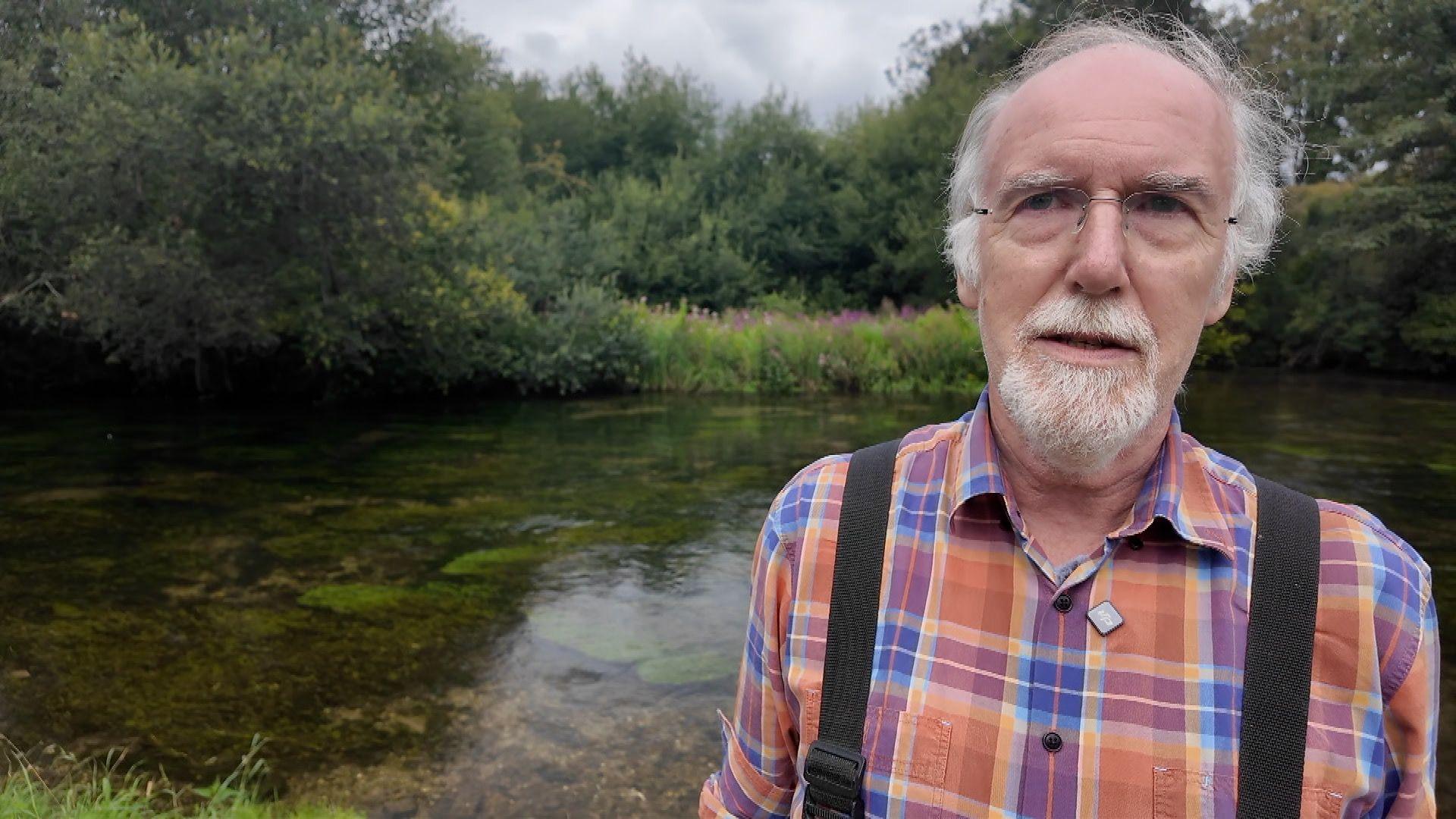
Ian Diver said some of the fibres found were from washing machines where households were not on mains drainage
"For the past 70 years plastics have been part of everybody's daily life," said Mr Diver.
"But it's only in the last 20 years we've actually realised, or we've begun to realise, what actually happens when plastics turn into waste.
"The thing to remember about plastic is it doesn't breakdown most of it breaks up into smaller and smaller particles."
The research hopes to identify the types of particles in the chalk stream and aims to trace where they are entering the waterway.
The group also hopes to better understand the effect the micro particulates are having on the delicate ecology.
Current plans are to publish the full results of the study at the end of the year.
Get in touch
Do you have a story BBC Berkshire should cover?
You can follow BBC Hampshire & Isle of Wight on Facebook, external, X (Twitter), external, or Instagram, external.
Related topics
- Published6 July
